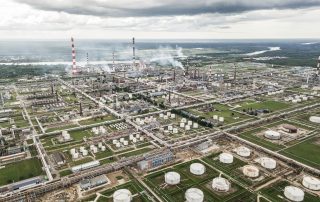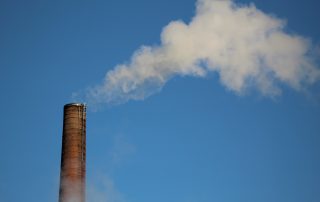Decommissioning of Offshore Oil & Gas Structures
Decommissioning is the set of technical, environmental, and regulatory activities required to safely retire offshore oil and gas assets at the end of their productive life. It represents the definitive closure of operations and involves well plugging and abandonment, removal or repurposing of topsides and substructures, and the remediation of the seabed. More than a single engineering task, decommissioning is a multidisciplinary process that integrates offshore engineering, subsea operations, environmental science, logistics, and regulatory compliance. International conventions such as OSPAR, along with national regulatory frameworks and environmental legislation, establish strict requirements for how offshore assets must be retired. As a [...]
COP-27: What industries should be expecting in this year edition
Intro The COP (United Nations Climate Conference) is an annual event organized by the UN with the objective of centralizing the debate about the role of nations in relation to the need for global warming contingency and reaffirming the commitments made by countries. The event takes place between November 6th and 18th in Egypt, where several actions necessary for the prospection of investments, technologies, and policies that reaffirm the commitment to the global climate treaty by the UN will be discussed. In this post, we will talk about the issues that will be addressed at this year's event and [...]
Perspectives for renewable energy sector
For at least 150 years, human activity has been the primary responsible for emissions of greenhouse gases into the atmosphere. The imminent threat of climate change has been pushing the need for energy transition by the industrial sector. Since the Kyoto protocol, industries have been developing roadmaps for a more sustainable operation with greater control over carbon emissions balanced with asset performance. Later, the Paris Agreement defined the need to contain global temperature by 2 degrees Celsius annually. And, in 2021, the COP26 (The United Nations Conference on Climate Change) reiterated the need for effective actions with [...]
Asset Integrity as a Climate Change mitigation action
Asset integrity management is an extremely important program for industries and it can vary according to each operation, according to its specific needs and particular characteristics. Although it has been present for a long time in the industrial sector, with the objective of generating more safety and reducing risks to operators, integrity management can be another method used by industries against the challenge of containing climate change. Read: Understand the importance of Asset Integrity Management Opportunities for a good sustainability-oriented AIM system Industries are facing requirements from stakeholders in relation to the optimal use of assets in their [...]
Digital Twin for Renewable Grid Optimization
The world is moving toward a renewable energy production model. This transition is part of a series of measures adopted in order to break energy dependence on polluting sources. The concerns generated from the effects of global warming have made clean energy a source of supply option in many countries around the world. However, there is still a large gap in the operation and management of these sources on a large scale. In this article, we will highlight the key challenges of energy transition and how Digital Twin technology can bridge this gap and enable large-scale [...]
6 important facts about industries decarbonization
Decarbonization is a must for industries. The search for decarbonization of industrial operations is one of the biggest challenges concerning the future of the industry. The industry seeks through digital technologies the necessary subsidies to circumvent the problem and generate greater safety, flexibility, and efficiency in its operations. In this text, we will highlight some important concepts surrounding the issue of decarbonization and what are the perspectives and technologies that can help the industry move towards a sustainable and net-zero operation. Current scenario Climate change is becoming an increasingly present issue in the planet's reality. The effects caused [...]
How digital transformation can help in industry decarbonization
The C02 emission into the atmosphere, even with the constant efforts for a net zero future, remains quite problematic. In 2019, the three sectors that emitted the most gas worldwide were Electricity and heat producers, Transport, and Industry, reaching values of approximately 14068 Mt, 8222 Mt and 6254 Mt according to the International Energy Agency. In this scenario, seeking greater control of the operation within these sectors, digital transformation appears as essential to monitor the emission of gases into the atmosphere and increase the efficiency of processes, allowing a gradual decarbonization of the industry in general and a sustainable [...]
How renewable energy is benefiting Industries
Climate change is a global emergency that needs immediate action. According to the UN, the industrial sector is responsible for at least 21% of the generated emissions, actively contributing to global warming. The industrial sector is well aware of its responsibilities and now is seeking, through digital transformation, to align its operations with ESG (Environmental - Social - Governance) principles. Read more: Key principles for the ESG concept Among all the measures required to align operations with the agreements pre-established by the Paris Agreement is the containment of global temperature by no more than 2º Celsius per [...]
The Role of industries in Climate Change
In 1992 the United Nations already warned about the problems that the uncontrolled emission of greenhouse gases in the atmosphere could cause to future generations. The Kyoto protocol was one of the first international agreements aimed at containing the emission of these gases into the atmosphere by at least 5.2% compared to 1990 levels, in the period between 2008 and 2012. At this first moment, some oil companies in the world began scientific research seeking to understand the consequences of global warming-induced by human actions. After 10 years, large industries changed their position, and started strategies that abruptly [...]
The Industrial Path to Contain Climate Change
Global warming is a problem with major consequences for the future of the planet. Climate change has caused major catastrophes in different regions of the planet. The problems are consequences of the emission of greenhouse gases uncontrollably into the atmosphere, in addition to: Failures in the ozone layer Deforestation of forests Pollution of rivers and seas Illegal fishing Unbridled use of non-renewable resources The problem is of extreme importance and the world's attention is turned to industries, which are responsible for at least 50% of the emission of greenhouse gases into the atmosphere. Among the various industrial [...]









